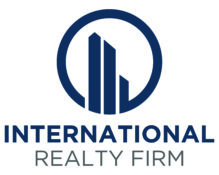Selling a house without a realtor requires careful planning and execution. By following these steps, you can navigate the selling process successfully and maximize your chances of a smooth and profitable sale.
1. Set a Competitive Price
Determining the right price for your house is crucial to attract potential buyers. Conduct thorough research on recent sales of comparable properties in your area. Consider factors such as location, size, condition, and amenities. Online valuation tools and consulting with a professional appraiser can also provide insights. Set a competitive and realistic price to generate interest from buyers.
2. Prepare Your House for Sale
Create a good first impression by preparing your house for sale. Declutter, clean, and stage your home to showcase its best features. Make necessary repairs, touch up paint, and enhance curb appeal. Consider professional photography to capture high-quality images that highlight the property’s attractiveness. Presenting a well-maintained and visually appealing home can significantly impact buyer interest.
3. Market Your Property
Invest time and effort into marketing your property effectively. Create an attractive listing description that highlights its unique selling points. Take advantage of online platforms such as real estate websites, social media, and FSBO listing websites to reach a wide audience. Use high-quality photos and provide detailed information about the property. Consider creating printed flyers or brochures to distribute in local community centers or real estate offices.
4. Showings and Open Houses
Schedule private showings for interested buyers and consider hosting open houses to attract a larger pool of potential buyers. Prepare your house for showings by keeping it clean and organized. Be available to answer questions and provide information about the property. Consider creating a fact sheet with key details about the house, such as room dimensions, recent upgrades, and property taxes.
5. Negotiating Offers
When you receive offers from interested buyers, carefully review each one. Assess the financial qualifications of the buyers, including their mortgage pre-approval status. Consider seeking legal advice to ensure you understand the terms and conditions of the offers. Negotiate with buyers to reach a mutually satisfactory agreement on price, closing date, and other contingencies. Remember, it’s essential to stay professional and maintain open communication throughout the negotiation process.
6. Handling the Closing Process
Once you have accepted an offer, the closing process begins. Work with a real estate lawyer or a title company to handle the necessary paperwork, including the purchase agreement, title search, and closing documents. Ensure all required inspections, appraisals, and disclosures are completed in a timely manner. Coordinate with the buyer’s mortgage lender, if applicable, to facilitate a smooth transaction. Be prepared for negotiations that may arise during the closing process, such as repair requests or contingencies.
7. Conclusion
Selling a house without a realtor requires careful planning, attention to detail, and effective marketing. By setting a competitive price, preparing your house for sale, marketing it effectively, conducting showings, negotiating offers, and handling the closing process diligently, you can successfully sell your house without the assistance of a real estate agent. Remember to seek professional advice when needed, such as from a real estate lawyer, to ensure a legally compliant and smooth transaction.
8. Frequently Asked Questions (FAQs)
Q1: Do I need to provide a seller’s disclosure when selling without a realtor? Seller’s disclosure requirements vary by jurisdiction. It’s essential to familiarize yourself with local laws and regulations regarding disclosure obligations. Consulting with a real estate lawyer can provide guidance specific to your area.
Q2: Can I still offer a commission to buyer’s agents when selling without a realtor? Yes, you can offer a commission to buyer’s agents to incentivize them to bring potential buyers to your property. Typically, the commission is negotiable and can be specified in the listing.
Q3: How can I ensure a smooth closing process without a realtor? Working with a real estate lawyer or a title company can help facilitate a smooth closing process. They will guide you through the necessary paperwork, ensure legal compliance, and handle the transfer of funds and ownership.
Q4: Is it more difficult to sell without a realtor? Selling without a realtor requires additional effort and responsibility, but it can be done successfully with proper preparation and execution. Being organized, knowledgeable about the process, and having effective marketing strategies in place can increase your chances of a successful sale.
Q5: Are there any disadvantages to selling without a realtor? Selling without a realtor means taking on tasks typically handled by an agent, such as marketing, negotiations, and paperwork. It requires time, effort, and knowledge of the real estate market. Additionally, without the network and resources of a realtor, reaching a wide audience of potential buyers may be more challenging.
In conclusion, selling a house without a realtor is an option for homeowners who want to save on commissions and have full control of the selling process. By setting a competitive price, preparing your house, effectively marketing your property, conducting showings, negotiating offers, and handling the closing process diligently, you can successfully sell your house without the assistance of a real estate agent.

